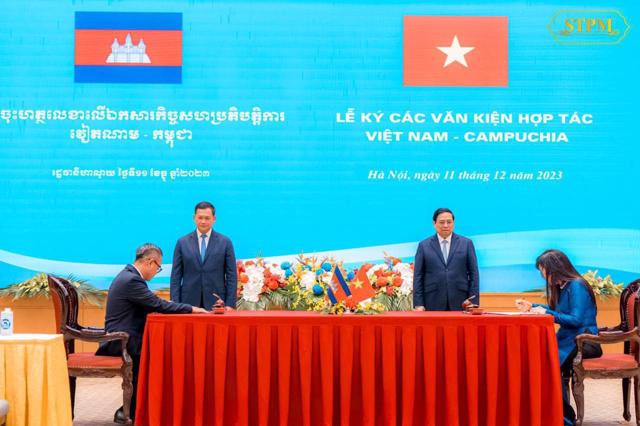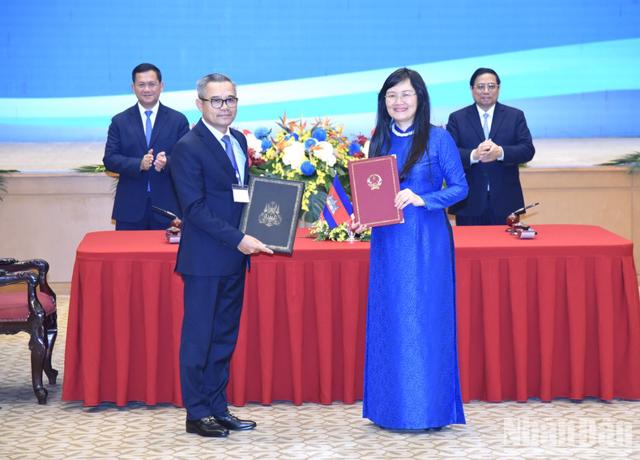

On occasion of the official visit to Viet Nam of the Prime Minister of the Kingdom of Cambodia H.E. Samdech Moha Borvor Thipadei Hun Manet, H.E. Hun Manet and H.E. Pham Minh Chinh, Prime Minister of the Socialist Republic of Viet Nam, witnessed the signing ceremony of the MOU between the DAV and the NIDIR. The MOU was signed by Dr. Lan Dung, Acting President of the DAV and H.E. Mr. Cheuy Vichet, President of the NIDIR.

The NIDIR was officially established in 2016 under the auspices of the Ministry of Foreign Affairs and International Cooperation of the Kingdom of Cambodia, with the aim of training professional Cambodian diplomats through developing professional capacities which help them cope with the increasingly challenging diplomatic world and especially enhance the Cambodia's participation and role in regional issues.
The signing of the MOU aims to expand cooperation and improve the quality of training and fostering foreign affairs officers of the two sides; strengthen the cooperative relationship between the two countries in all fields.

In the up-coming years, the DAV and the NIDIR will work together to implement the following activities: a) Exchange information about training programs and other related academic activities; b) Organize short-term and medium-term training programs for diplomats of the two countries; c) Exchange of professors, lecturers, researchers, interns and experts between the Parties in fields of common interest; d) Invite experts from each Party to attend conferences and seminars organized by the other Party; e) Exchange of research documents published by the Parties; f) Carry out joint research projects and other forms of cooperation that may be mutually consulted and decided by the Parties./.